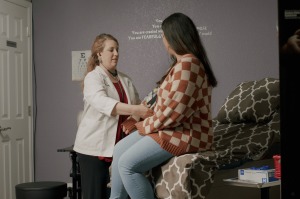Court: Canadian Commissioners Must Wed Gay Couples
Marriage commissioners cannot refuse to perform same-sex marriages, even if doing so would be contrary to their religious beliefs, the highest appeal court in Saskatchewan, Canada, ruled Monday.
The Saskatchewan Court of Appeal rejected two amendments to Canada's Marriage Act that would have protected the religious and conscience freedoms of marriage commissioners.
"Either of them, if enacted, would violate the equality rights of gay and lesbian individuals," the court said in its decision as it declared the amendments to be unconstitutional.
The Evangelical Fellowship of Canada, an intervenor in the case, expressed disappointment in the ruling.
"While the court recognized that a refusal to accommodate the constitutional rights of marriage commissioners would result in a violation of their freedom of religion, it determined that such a violation was necessary in order to ensure the equality rights of gay and lesbian individuals," EFC summarized.
The appeal court cited Supreme Court decisions in confirming that freedom of religion is "not absolute" and is subject to limitation in some cases, such as this one.
"This is clearly one of those situations where religious freedom must yield to the larger public interest," the court ruled.
Canada became the first country in the Americas to allow gays and lesbians to marry in 2005. Three marriage commissioners filed human rights complaints against the Government of Saskatchewan alleging that the policy requiring them to perform same-sex marriages infringed their freedom of religion.
The complaints were dismissed but soon after a human rights complaint was filed against one of the commissioners, Orville Nichols, alleging that he had acted in a discriminatory fashion. The Human Rights Tribunal upheld that complaint. Nichols was then unsuccessful in his appeal. A further appeal went before the Saskatchewan Court of Appeal.
In 2008, Nichols and two other marriage commissioners sued the government and the attorney general, among others.
The government proposed two potential legislative options: one permitting marriage commissioners appointed before Nov. 5, 2004 – the day same-sex marriage was recognized in Saskatchewan by a judge – to refuse to solemnize a marriage contrary to their religious beliefs, and a second that would allow any marriage commissioner the same right.
There are an estimated 372 marriage commissioners in the province of Saskatchewan. The court noted that "many gay and lesbian couples will not have access to the institution of marriage unless they are able to call on a marriage commissioner to perform the required ceremony."
The court asserted that marriage commissioners "do not act as private citizens when they discharge their official duties. Rather, they serve as agents of the Province and act on its behalf and its behalf only."
Thus, allowing marriage commissioners to act according to their personal religious beliefs "would undercut the basic principle that governmental services must be provided on an impartial and non-discriminatory basis," the court stated.
EFC Legal Counsel Faye Sonier contested that argument.
"To argue that only citizens working in the private or non-profit sectors have Charter protections is ludicrous and contrary to our human rights and employment law," Sonier said. "Canadian case law is clear – regardless of where you work in our nation, you have constitutional rights as enshrined in the Charter."
EFC Vice President and General Legal Counsel Don Hutchinson affirmed the right that all Canadians have in accessing marriage services. But he contended that there is no right to be married by a particular person.
"It's the state's duty to guarantee proper accommodation of commissioners while ensuring access to marriage services," he said.
The Saskatchewan government said it will not appeal the ruling.




























